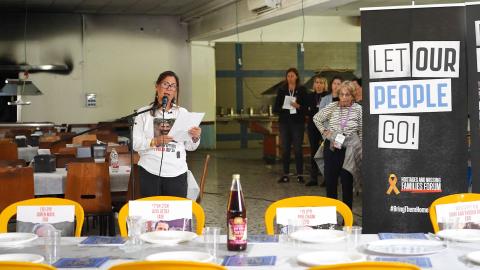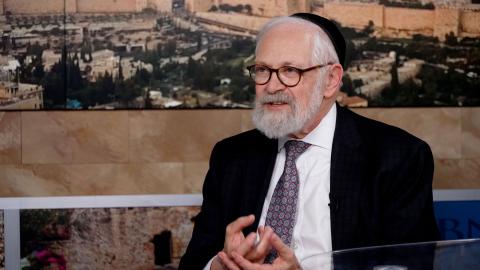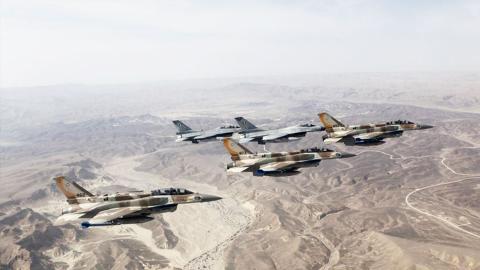Rome Gathering of Abraham Accords Nations Marks Middle East Turning Point
ROME, Italy – The 2020 signing of the Abraham Accords marked an historic turning point in the Middle East. At a gathering in Rome last week, leaders from several nations began working to spread the principles of the accords to other nations.
The Rome event was called the Abraham Accords Global Leadership Summit, and it was the first gathering of its kind to expand, build upon and strengthen the accords, which were signed at the White House on September 15, 2020.

The summit brought together ambassadors, diplomats, religious leaders and policy makers. Former Israeli Ambassador to the U.N. Danny Danon hosted the gathering.
“It's an amazing event where we have dozens of leaders from all around the world coming together to learn from us, the country within the region who achieved peace, how we did it, and what we can do to help them,” Danon told CBN News.
Tomas Sandell, director of the European Coalition for Israel, believes the summit is important for two reasons. “One is that the Abraham Accords has been for two years, and everyone is asking what is next; and I think this conference will try to address that question,” Sandell said.
He added that the second reason for the summit’s importance is its location. “I think it’s significant that this conference is taking place in Europe, in Rome, and I think that we need to look and see how we can get the European countries more involved so that Europe could play a constructive role in the Middle East.”
A major theme of the conference was the emphasis on traditional family values of the Abrahamic religions of Christianity, Judaism, and Islam.
“Traditional family values are the core of whatever peace efforts we want to make,” explained Imam Mohammad Tawhidi, Vice-President of the Global Imams Council. “Without basing our main common goals on family values, then we can't actually aim to protect this family.”
Dr. Elie Abadie, senior rabbi of the United Arab Emirates, expressed concern for the deterioration of cultural norms in the West. “Unfortunately, I have to say that in the West, the traditional family values have been eroding for the last 60 years more and more,” he said. “And now, after having now moved to live in the UAE for the last two and a half years since the Abraham Accords, have kind ofPP reminded us again of these cherished values – values of the ages in millennia.”
Pastor Cash Luna Lam heads Casa de Dios, the largest church in Guatemala. He agrees it is important that leaders in the faiths represented in the Abraham Accords find common ground.
He said, “It's important for me because we are talking about Abraham Accords and then we share the same, we share the past, the three religions that are coming from Abraham, and I think we need to share the future also.”
“Economic peace” also played a major role in the gathering as the leaders shared how common prosperity among the signatories can promote peace. Geopolitics surrounding the region are still shifting as China is now courting Saudi Arabia. Even so, Ambassador Danon hinted to participants that the Saudis might be the next country to join the Abraham Accords.
“We have been working with the Saudis for many years quietly, and I hope that within a year we'll be able to have another ceremony signing with the Saudis. We want to have peace in the Middle East and Saudi Arabia is a very important partner for us,” Danon said.
The summit ended with the signing of an Abrahamic values pledge, along with the goal to spread the spirit of the Abraham Accords to the nations.
***Please sign up for CBN Newsletters and download the CBN News app to ensure you keep receiving the latest news from a distinctly Christian perspective.***




